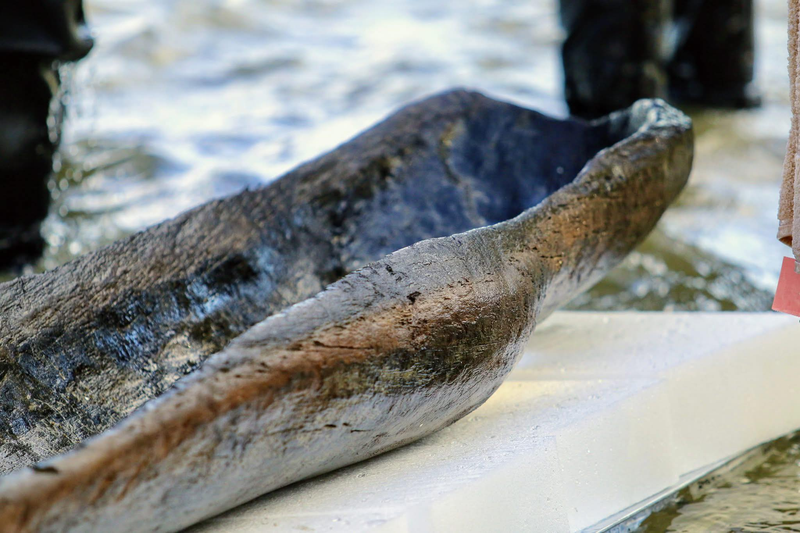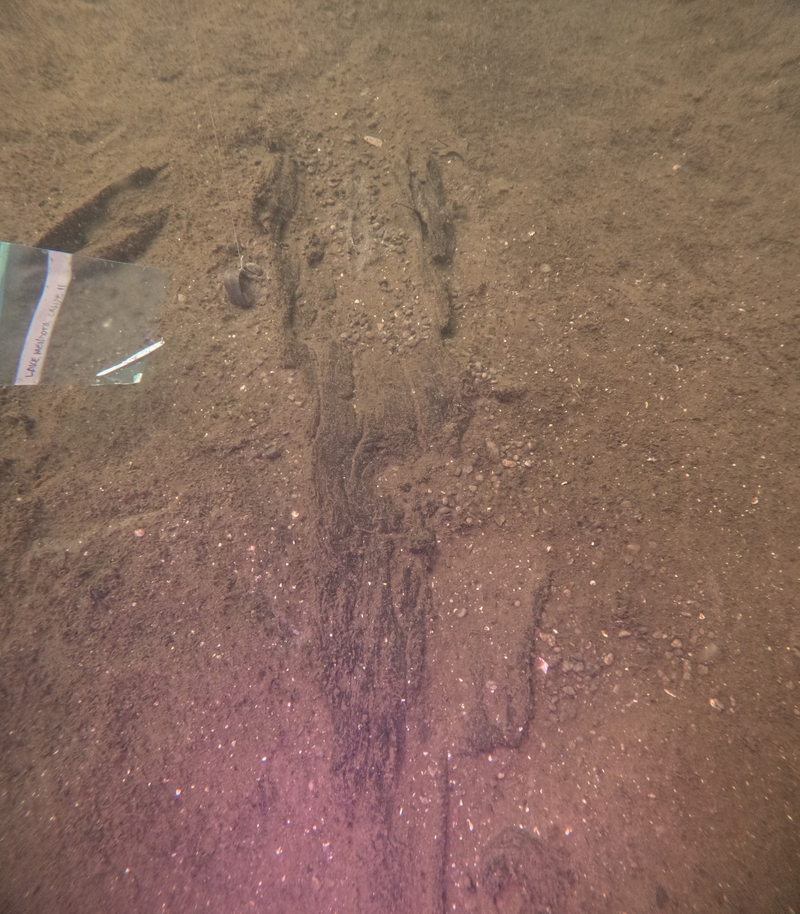
The Wisconsin Historical Society says 16 ancient canoes have now been found submerged and buried under sediment in a lake in Madison.
The canoes, carved from oak logs, have been pulled out of Lake Mendota over a period of four years.
One, according to carbon dating of the wood, has been determined to be 5,200 years old.
The state’s Maritime Archeologist, Tamara Thomsen, found the first canoe, determined to be 1,200 years-old, while on a recreational dive with a friend in 2021.
About 3 feet of the canoe was visible, she said.
“As we stopped, I pulled out a notebook, just like a write in the rain paper with a pencil, and I wrote, that’s a dugout canoe on my slate.”
She said after the discovery “its about 15 feet long and it was completely intact, amazing.”
She’s been studying the site periodically since then.
Thomsen said the site is near a network of what were once indigenous trails. She said there have been so many discoveries – 16 to date – because the site is believed to have been what she called “a parking spot that's been used for millennia, over and over."
They were shared canoes, she said. Some were buried on top of others.
They would be buried or weighted down in shallow water when not in use.
The first canoe was found in 27 feet of water.
Thomsen said the depth was probably four feet at one time.

“I didn’t see anything except this small, weird pile of rocks. I knew that cached canoes were a thing, not in 27 feet of water.”
Bill Quackenbush, the Ho-Chunk Nation’s tribal preservation officer, said in a statement, "The canoes remind us how long our people have lived in this region and how deeply connected we remain to these waters and lands."
Larry Plucinski, of the Bad River Band of Lake Superior Chippewa, said "The canoes give us insight into a sophisticated travel network and interconnected communities who used their incredible skills and knowledge to live and thrive on lands where we still live and thrive today.
They reflect a deep relationship with the environment and the ingenuity of our ancestors."
